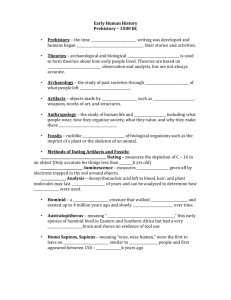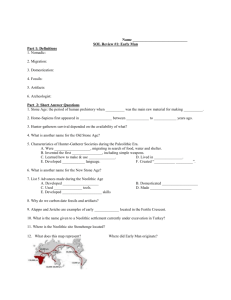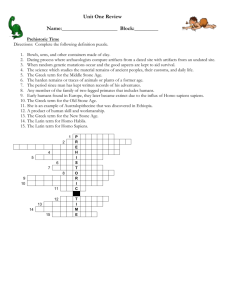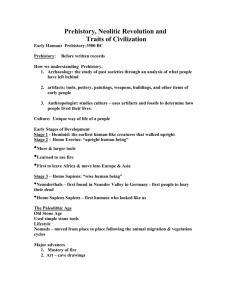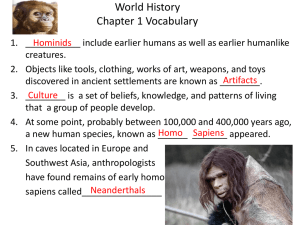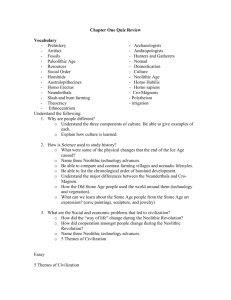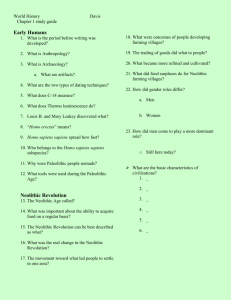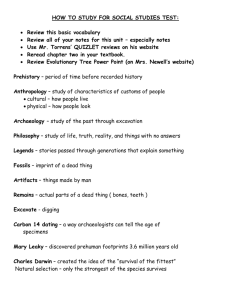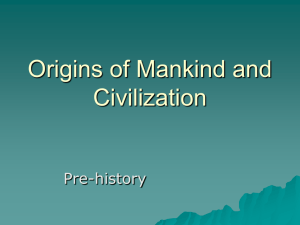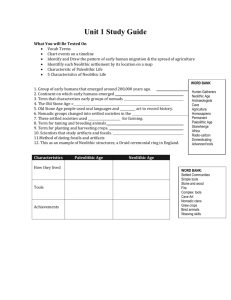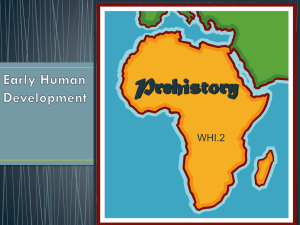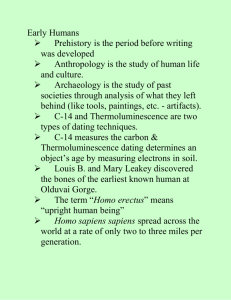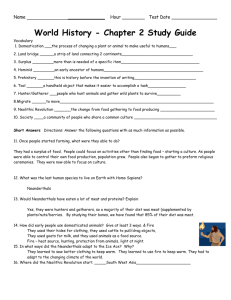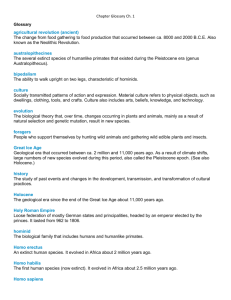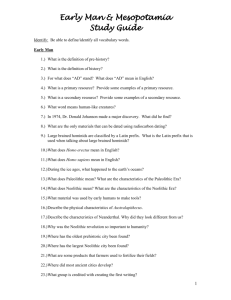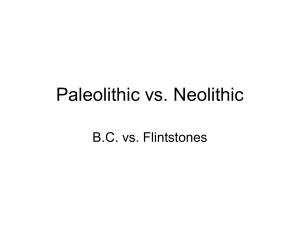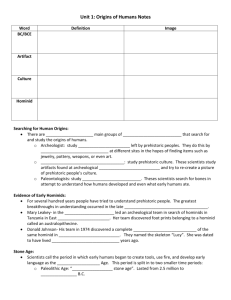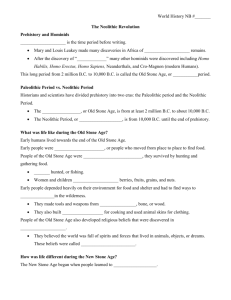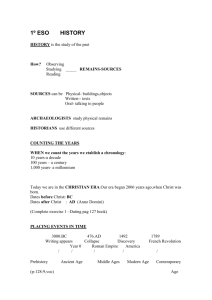Unit 1 Vocabulary Working Copy
advertisement
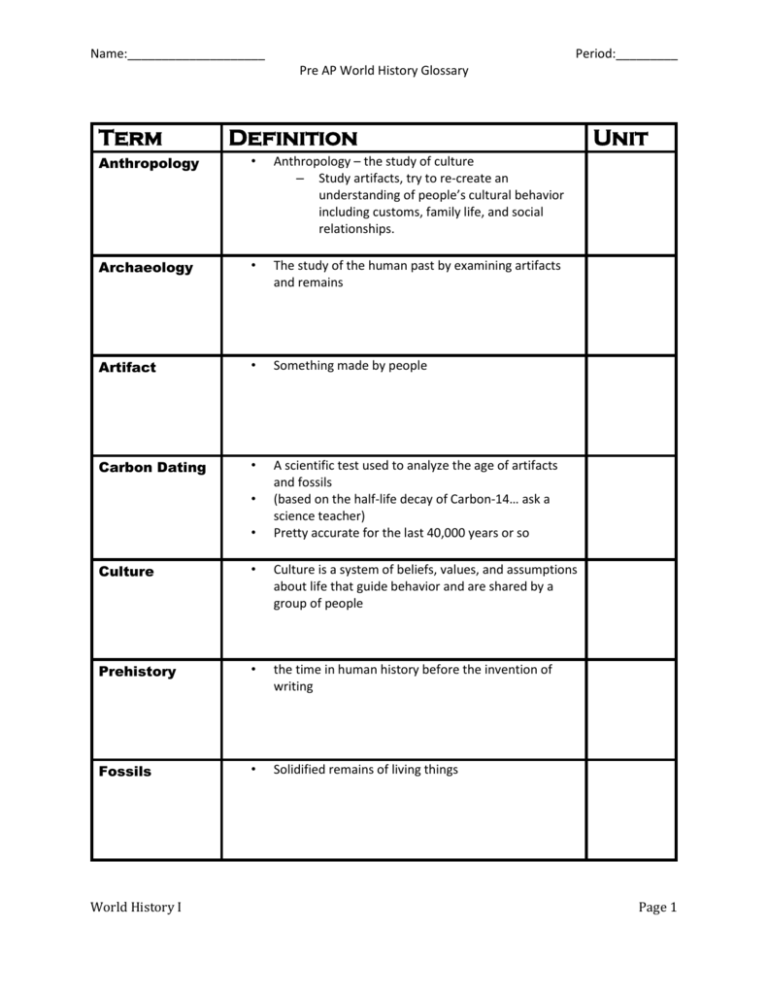
Name:____________________ Period:_________ Pre AP World History Glossary Term Definition Anthropology • Anthropology – the study of culture – Study artifacts, try to re-create an understanding of people’s cultural behavior including customs, family life, and social relationships. Archaeology • The study of the human past by examining artifacts and remains Artifact • Something made by people Carbon Dating • A scientific test used to analyze the age of artifacts and fossils (based on the half-life decay of Carbon-14… ask a science teacher) Pretty accurate for the last 40,000 years or so • • Culture • Culture is a system of beliefs, values, and assumptions about life that guide behavior and are shared by a group of people Prehistory • the time in human history before the invention of writing Fossils • Solidified remains of living things World History I Unit Page 1 Term Excavation Definition Hoping to find ancient settlements, burial sites, tools, etc. Paleolithic Era – – – Tools Homo Sapiens 1 the Old Stone Age Humans created the first tools made out of stone about 2.5 million years ago Items made in order to make labor easier and more efficient • • • Smarter, larger-brained humans known (Latin for “wise man”) – Developed technology • Clothing • Shelter • Art Homo sapiens are modern humans Technology Items, tools, machines, and items made for specific purposes Examples: arrowheads, atlatl, clothing, fire starters, shelters, paints… Migration Movements of populations from place to place. - Can be human or animals - Example: human migration out of Africa approximately 100,000 years ago Huntergatherers People(s) that subsist primarily through hunting and gathering food Clan A group of people (approximately 60 to 100 people) often extended families that live/work/travel together World History I Unit Page 2 Nomads People who move consistently and periodically following: - Herds of animals - Seasonal foods/edible plants - Water - Seasons Neolithic Era Neolithic = New Stone Age Neolithic Revolution Also known as the “Agricultural Revolution” Agriculture Farming Domestication tame (an animal) and keep it as a pet or for farm produce Village A group of houses and associated buildings, larger than a hamlet and smaller than a town, situated in a rural area. Specialized Workers Artisans World History I Page 3
